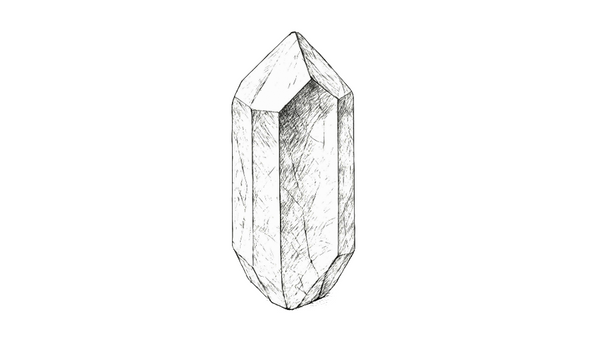Is Vinegar Good for Cleaning?
Vinegar is thought to have been discovered by accident, as a byproduct of making beer or wine. During alcoholic fermentation yeast consumes the sugars of fruits and grains and excretes alcohol. During acetic acid fermentation, that alcohol is exposed to oxygen and the bacteria acetobacter, and the result of that process is vinegar. Vinegar was discovered to have antimicrobial qualities and there is archaeological evidence of cucumbers being pickled in the Tigris Valley in 2030 BCE.
The cool thing about vinegar being a food preservative is that using vinegar to clean has an antimicrobial effect. Vinegar’s antimicrobial properties have been studied and found to be effective at killing some food born bacteria and viruses making it an excellent choice for cleaning the kitchen and areas where children and animals frequent. Lots of conflicting info online about this, I recommend articles like this for more information if you want to learn more.
Vinegar is non-toxic as well as cleansing and it is also usually gentle for the skin. Some believe vinegar is great for your skin, especially as an astringent for oily or acne prone skin. Diluted properly it is considered generally safe for skin although people with certain skin conditions should be careful with it. Most store bought white distilled vinegar is 5% acetic acid and should be mixed with an equal amount of water for cleaning purposes. That’s 50% vinegar mixed with 50% water and results in a 2.5% acetic acid solution.
White Vinegar: 5% acetic acid. Food grade.
Cleaning Vinegar: 6% acetic acid. Don’t eat this vinegar. It’s almost the same as regular white vinegar but may not be safe for consumption.
Industrial Vinegar: 20% acetic acid. This strength vinegar releases strong fumes and can permanently damage the surfaces of floors and kitchen counters as well as harm your skin, eyes and airways.
There are so many recipes for DIY cleaning solutions online that are mixing chemical cleaners together and mixing commercial chemical cleaners with vinegar. There are a lot of ingredients in cleaners. Please don’t! Some chemical reactions are very strong and even deadly:
Vinegar + bleach = chlorine gas
Vinegar + ammonia = peracetic acid
Vinegar + hydrogen peroxide = peracetic acid
Both chlorine gas and peracetic acid are severe skin, eye and respiratory irritants.
The general consensus on the internet is that vinegar cleans everything and more so lets explore some of the claims;
Vinegar cuts through grease
Since grease is oil, not really effective at this. Vinegar and oil don’t mix at all and you can see that if you make vinaigrette.
Vinegar removes thick hard water buildup
Vinegar will remove the type of light and new hard water spots you might see after washing your dishes. Beyond that not so much. Lime-a-way contains hydrochloric acid, a super strong acid which is needed to penetrate a rock and calcium buildup is just that. Most hard water buildup can also be avoided with a water softener.
Vinegar cuts through soap scum
Soap scum is a lot like grease. Soap attracts dirt and grime to it so you can wash it away, while vinegar kind of repels it.
Vinegar removes stains
I have never seen vinegar remove a stain from a surface. I'm not convinced vinegar removes those stains but I'd love to see it be true.
Vinegar removes odors
More like vinegar is odorous! Give it a little time and the smell completely fades away.
Vinegar mixed with baking soda will clear drains
It is said when these two mix, they create carbon dioxide, which loosens things like dirt and clogged drains. This is recommended all over the internet, and in contrast real life plumbers are advising against that because vinegar can corrode old pipes and damage fastenings. I will go with the plumbers advice. Keep a drain cover to catch hairs to avoid a hair clog. I am not a plumber, but I try to dispose of grease and oily things in the trash and if they do make it down the drain, I run hot water for a while.
Warnings:
Vinegar is acidic and can be a bit corrosive so consider keeping it away from natural stone, electronics, cast iron, unfinished wood surfaces, rubber gaskets and hoses, metals and stainless steel and anything else you love and would not want a little bit of acid splashed on it accidentally. The use of vinegar in dishwashers and washing machines is not recommended because it can cause damage to their rubber seals and hoses, leading to leaks. Vinegar is acetic acid, a weak acid that can safely be used on a lot of surfaces in your home, but it is a strong enough acid to not want to mix it with other cleaning chemicals.
Best Uses:
Vinegar is good for when you want to clean and wipe things spot and streak free such as mirrors and windows. It’s great for general mopping of floors, especially where kids and pets frequent as it’s cleansing and non-toxic. For surfaces like vinyl, plastic, glass, finished wood it’s going to clean that stuff great. Just make sure you dilute it first and don’t inhale it if you’re spraying it.
Keep in mind vinegar’s antimicrobial effects are increased with hot water. It will also make your house smell like a pickle for a little while!
We offer an herbal vinegar cleaning solution that smells more like fresh herbs than vinegar here if you want the effects of vinegar with a little better scent experience :)

